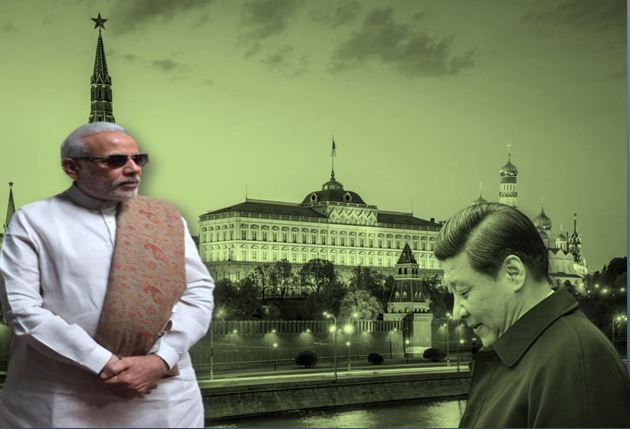For China, Beijing Winter Olympics is just not about hosting the mega-sports event; it’s more of CCP’s soft power projection at the world stage. 2022 brings in a new election, and President Xi Jinping desperately wants to turn this event into a grand success to keep his re-election ambitions alive.
Putin and Xi Jinping refrain from discussing Quad
This became evident as soon as a joint communiqué was released after Russian President Vladimir Putin held talks with Xi Jinping. The communiqué was full of political statements. From condemning the AUKUS security pact to criticizing NATO’s moves in Ukraine, from lambasting the US to rebuking separatist forces in the island nation of Taiwan, the joint statement reflected the rock-solid partnership between the two giant neighbours. Interestingly, the statement avoided the mention of the Quad alliance.
Under the Quad framework, India, Japan, Australia and the US have agreed to consolidate their efforts towards blocking China’s efforts to stir up security tensions in the Indo-Pacific. China has always looked askance upon the security grouping and has often slammed it as an “anti-China” alliance. It has always sought Russia’s support against Quad in order to counter the burgeoning threat to its national security.
Read More: China wants Russia to go against the QUAD but Putin gives Xi Jinping the silent treatment
The reasons behind China and Russia avoiding criticizing India and Japan
It’s interesting to note that the two nations didn’t mince words while criticizing the AUKUS pact signed last year between the US, the UK and Australia. This shows that both Russia and China have no qualms in criticizing Australia or the US. But when it comes to criticizing India and Japan, both nations appear to be treading a fine line. There could be three reasons behind this behaviour.
- Russia’s close ties with India: It makes no sense for Russia to rake up anti-India issues in Beijing. Russia and India are strategic allies, and even the top echelons of the CCP acknowledge this. India is the only obstacle that carries the potential to derail the Sino-Russian partnership.
Russia and India are working closely on developing Russia’s far-east region, and the two countries are major defence partners as well. In 2020, when Russia found India mired in unprecedented Chinese aggression, the Kremlin lost no time in reining missile supplies to China. On the other hand, Russia had also fast-tracked the S-400 missile defence system delivery to India. For Russia, it would be impractical to criticize India for mere short-term political favours from China.
- China doesn’t want to stoke tensions further: China has already earned a diplomatic boycott of the Beijing Olympics from India caused by chinas ploy in bringing a PLA soldier involved in Galwan clashes to carry the Olympic torch during the opening ceremony. India’s public broadcaster DD has also announced a boycott of the opening and closing ceremonies of the Olympics. Now, China doesn’t want to further spoil relations with India, given the South Asian country’s indispensable role in China’s economy. India is the world’s largest democracy, and strained relations between China and India also weakens China’s position in alliances like SCO and BRICS.
- The rapprochement between Russia and Japan: Speaking against Quad also risks spoiling Russia’s rapprochement efforts with Japan. India is believed to have created a trilateral grouping to bolster ties between Russia and Japan. Japan is also eying to replace China’s influence in Russia’s Far East. Japan is also dragging its feet on the US’s proposal to supply the EU with LNG gas should the Ukraine crisis hampers gas flows from Russia. Both nations are already cooperating on economically developing the disputed Kuril Islands to counter Chinese presence in the region.
China and Russia are not allies or partners. They are just two trading nations faced with the same adversary but for two different reasons. Most nations in the EU and around the Indo-Pacific don’t consider Russia as a national security threat for themselves. However, China is already perceived as the biggest threat to peace and stability across the globe.
The two nations may appear hand in glove as long as their interests don’t diverge. And that’s why both countries appear to be at loggerheads with each other when they come to the question of India, Japan, the Arctic or the Central Asian region.
